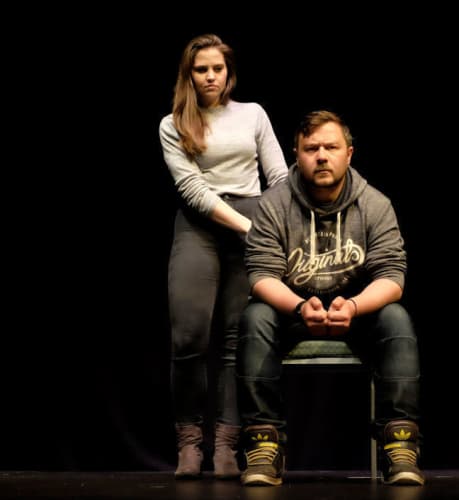Not many titles spring to mind when we think of stage plays about the Afghan wars.
I could mention The Empire, Great Games, Incoming, or Ugly Lies the Boy, but I’d be cheating, having just found those on Google.
Britain first got involved in that distant land in 1839 and we, the USA and Russia have popped in and out ever since, always with no resolution and always affirming the obvious fact that Afghanistan is best left to the Afghans.
Bob Jeffrey’s new play Dragon is informed by James Fergusson’s book One Million Bullets and centres on one North East individual’s post-Afghan experience in Helmand in 2006. According to Fergusson, more soldiers may well have died from suicide back in the UK than were killed in Afghanistan itself. Basically, once our lads had laid down the rifles and come home, the British Army weren’t interested.
Via the book, Jeffrey studied the case of many returning individuals and how the conflict affected them once home. The dragon of the title is a haunting creature of the soldier’s imagination, triggered by the nickname Dragon’s Lair given to an Afghan hill.
The play paints a pretty dismal picture. Micky McGregor is the returning North East soldier and Harriet Ghost his wife.
They are adrift and with the responsibility of two young children. He is becoming mentally unstable, plunging into gambling and drinking, their joint bank account is leaking like a sieve, their relationship increasingly acrimonious and flaring occasionally into violence. This is all played out on a basic domestic set and against a large white screen which is used sparingly.
Many soldiers from WWI onwards found their terrible war experiences locked inside them once home and the play’s many monologues are used most effectively when McGregor is laying bare his own feelings and experiences to the audience, giving us an exclusive insight into that world. The monologues are less effective (and too lengthy) when used by Ghost merely as exposition. One small example is when she describes her husband’s experience rapidly losing large amounts of money on those voracious hi-tec gambling machines. If ever a scene needed dramatising, this was it.
The whole ambivalence of the war experience, the way young men seek it to alleviate the boredom and drudgery back home (while the propoganda churns out all the stuff about ‘our brave boys’), the way combat can leave them as maybe the worst victims, all this is highlighted by the play. It will strike a chord with many a veteran. And Ghost and McGregor are both fine actors increasingly involved in the region’s theatre scene, partly through their involvement with the Blowin’ a Hooley Theatre Company.
So it’s an ambitious theme and with some painful dialogue. But sometimes it’s confined by its one domestic set which seems overstretched to contain the subject matter. This is where the large screen could have been useful. Picture postcard images of Whitley Bay add little to the play. The images should take us to Helmand. The visuals could also be used to exploit more the metaphor of the dragon which would give us an extra dramatic dimension that is underused.
Director Roxana Freeman works hard on what is obviously a limited budget to portray a relationship falling apart to a large extent due to external pressures. But late on, as the two characters increasingly scream and point at one another, it plunges deep into its own pessimism, relying overmuch on a narrow canvas.
The play opens with McGregor ritualistically commanding his wife in their own home to run through the ten-step procedure of engaging or disengaging an army firearm. Here’s a metaphor that does speak volumes. More like that please.
Good audiences at The Exchange, the North Shields venue strongly establishing itself as a place where theatre companies want to be seen and are now lining up to appear.
